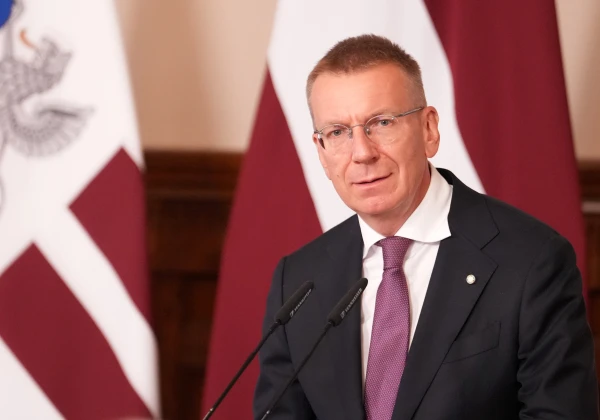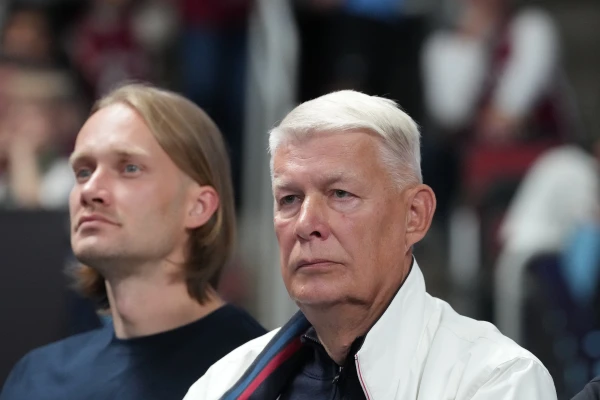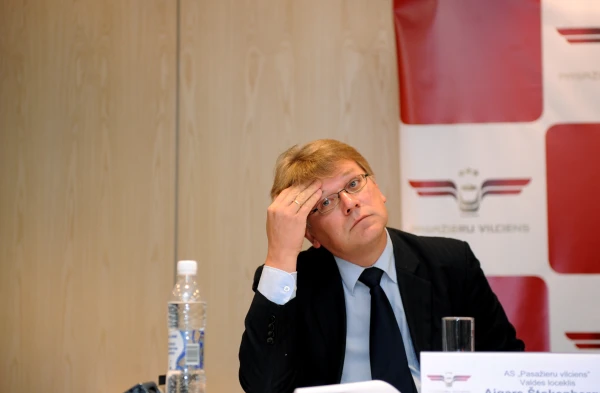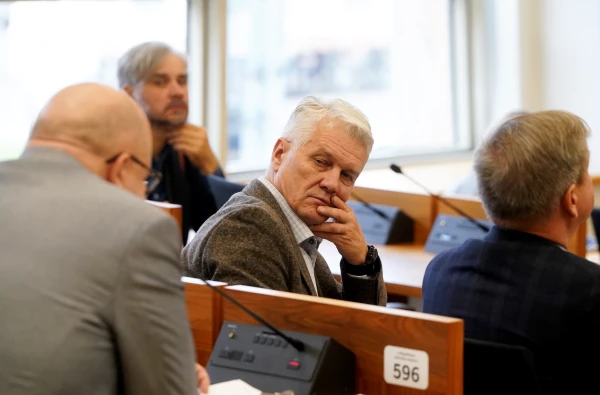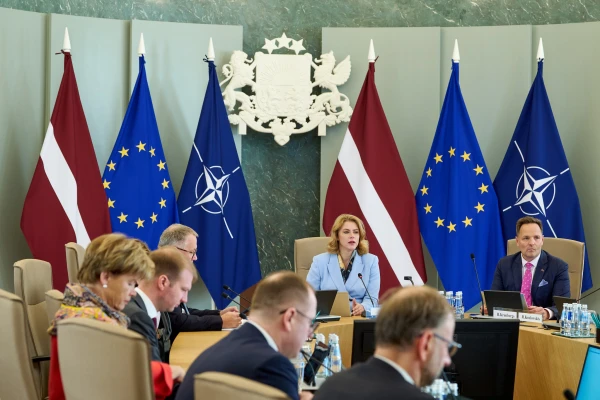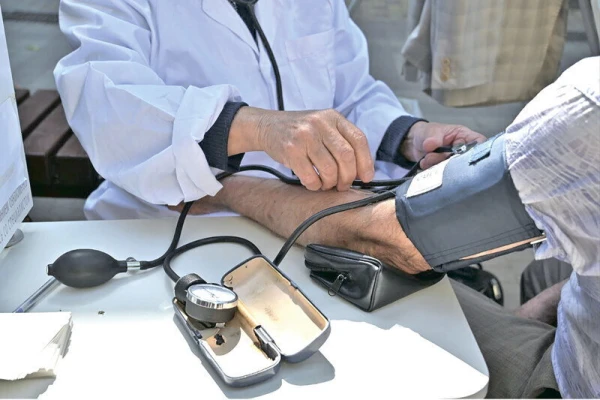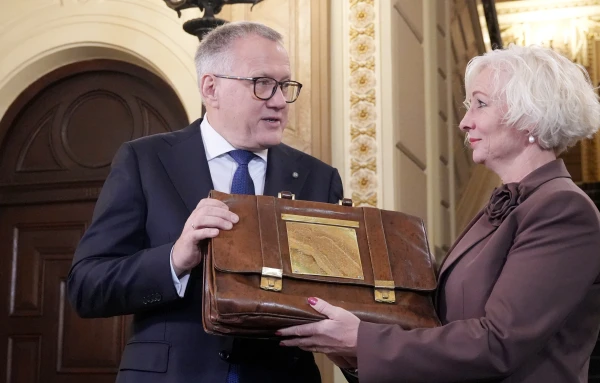
Today, the deputies of the Saeima will gather for an extraordinary plenary session to begin the process of reviewing the 2026 budget project, the main parameters of the budget for 2026, 2027, and 2028, as well as the package of bills related to the state budget.
Taxes Will Not Increase. Almost...
On the eve, Finance Minister Arvils Ašeradens, following a tradition established back in 1997, made a walking transition with the budget project in his portfolio from the Ministry of Finance building on Smilšu Street to the Saeima building on Jēkaba Street.
On the way, the finance minister reiterated his thesis that this is a very good budget given the circumstances. Both Minister Ašeradens and Prime Minister Silin emphasized that, despite rising expenses—primarily for defense—the government has managed to avoid increasing the main (basic) taxes.
Yes, indeed, neither the social tax nor the personal income tax has increased. The basic VAT rate has not been raised—except for the Ministry of Culture's proposal to remove the 5% VAT exemption for books and periodicals in the Russian language. However, this, to put it mildly, discriminatory proposal is still subject to discussions in the Saeima's budget committee.
It should be noted that discussions, including from the ruling deputies, are expected on other items in the 2026 budget project.
A Few Cents Added for Medicine
Thus, deputies from the Union of Greens and Farmers intend to once again attempt to cut the budget's expenditure side, with even the Speaker of the Saeima, Daiga Mieriņa (ZSS), promising to submit proposals. The saved money may be redistributed for other needs—for example, for medicine, which has been allocated a laughable additional amount in next year's budget, considering the needs of the healthcare sector—27.9 million. At the same time, at least 140 million would be needed to maintain at least the current level of medical assistance in the healthcare sector.
The overall increase in healthcare funding amounted to a negligible 1.7 percent compared to this year. In comparison, the increase in defense funding is expected to be around 15.3%. Or in monetary terms—693.5 million euros. Overall, military spending in Latvia next year will reach 1 billion 545 million. For the sake of objectivity, it should be noted that the healthcare budget is still larger than the defense budget—1 billion 948 million.
Let us remind you that next year's budget has been called the budget of security and defines three priorities: security, demography, and education. An additional 94.8 million has been allocated for demography—this money should be enough to increase childbirth and childcare benefits up to one and a half years, as well as to improve medical services for children and support families with foster children.
Also, among the good news for the public in the context of the budget, we can mention the increase of 40 euros in the minimum wage and the non-taxable minimum. Additionally, an experiment will be introduced to reduce VAT to 12% on bread, milk, eggs, and poultry meat. However, this experiment will not start on January 1 of next year, but only on July 1.
In confirmation of his words about a good budget, the Ministry of Finance provided a comparative table of the budgets of the Baltic States, which shows that, for example, Estonia has decided to raise the VAT rate to 24%, while our basic rate remains unchanged at 21%.
We Do Not Work at Night!
One way or another, the main thing for the government is to adopt the budget. If the Saeima votes against the budget in the first or second readings, the government automatically resigns.
However, coalition partners do not predict such a scenario. They hope to adopt the budget in the first days of December. The Speaker of the Saeima assured yesterday that the budget is not planned to be adopted, as "in the good old days," at night—the budget sessions will last no later than 21:00, and if deputies do not manage to review everything, the session will continue the next day—possibly even on Saturdays.
It is not planned to allocate deputies, as in the "fat years," deputy quotas—that is, the people's servants will no longer have the opportunity to secure funds for the renovation of their school or the publication of some historical book... There is simply no money in the treasury for all these "whims."
To adopt the 2026 budget, the ruling party still needs to ensure strict coalition discipline. Specifically, all deputies supporting the government must be present in the plenary session hall during the consideration of the 2026 budget and budget package. For this reason, all foreign business trips will be canceled during the budget consideration period in two readings, and it cannot be ruled out that even sick deputies will be asked to "gather their strength" and come to work, as the ruling party has a minimal vote advantage in the Saeima.
To maintain the majority, Andris Vilks (Union of Greens and Farmers) will officially resign his deputy powers today, as he has not appeared in parliament for a long time due to health issues. His place will be taken by veteran Latvian politician Jānis Dinevičs, who was a deputy of the Supreme Council during the historical period—from 1990 to 1993. As a result, the coalition will have a minimal majority of 51 votes.

